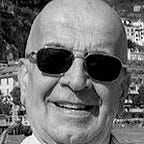Did the world begin on October 23, in the year 4004 BC?
Did you know that according to John Lightfoot, Bishop and Vice Chancellor of Cambridge University in 1655, this was the day on which the world began, at nine o’ clock in the morning?
His calculation was accepted for many decades.
But he was not alone on wondering when the universe began. Bishop James Ussher, a seventeenth-century Anglican cleric and biblical scholar also had the answer. God created the world, he said in a 1658 chronology titled “The Annals of the World”, on October 23, 4004 BCE.
Ussher was not, in fact, the first to pick that particular date as the beginning of the universe. Sir John Lightfoot, an official at Cambridge University, beat him to the punch by fourteen years. Like Ussher, Lightfoot based his calculations on information in the Bible.
He differed from Ussher on the time of day that creation took place, however. Ussher said the world began on “the evening preceding that first day.” Lightfoot put creation at nine o’clock in the morning.
Ussher worked not only from the Bible but also from histories of the ancient Near East. Because he was widely respected as a scholar, his calculations gained more acceptance than Lightfoot’s, and the determination was chiefly credited to him.
By 1701, Ussher’s date was incorporated into printed versions of the Bible. It remained an accepted date until the first half of the nineteenth century, when the scientific evidence for a much older planet began to emerge.
James Ussher (1581–1656) was the Church of Ireland Archbishop of Armagh and Primate of All Ireland between 1625 and 1656. He was a prolific scholar and church leader, who today is most famous for his identification of the genuine letters of the church father, Ignatius, and for his chronology that sought to establish the time and date of the creation.
Researches are still on …
Source: en.wikipedia.org
